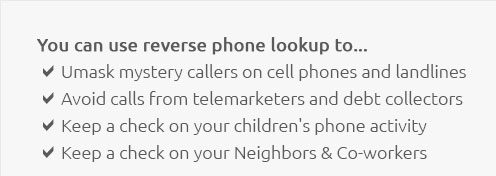 |
 |
 |
|---|
 |
 |
|---|---|
|
|
 |
|
|---|---|
 |
 |
 |
 |
 |
 |
|---|---|
 |
|
Expert Tips and Advice on Finding Residential Phone NumbersIn an era where digital communication prevails, the art of finding residential phone numbers might seem quaint yet surprisingly essential. The quest to locate these numbers, akin to discovering hidden treasures in a vast digital landscape, requires both finesse and respect for privacy. As we embark on this exploration, it's crucial to balance curiosity with ethics, ensuring that our endeavors remain respectful and considerate of individuals' personal information. To commence this journey, one must first embrace the traditional resources that have stood the test of time. Telephone directories, those hefty tomes that once graced every household, have transitioned into the digital realm. Online directories like White Pages and AnyWho offer a vast repository of information, often serving as the first stop for those seeking residential numbers. It's essential, however, to recognize that not all numbers will be listed, as privacy concerns and unlisted numbers present formidable barriers. For those with a penchant for investigative prowess, social media platforms provide an alternative avenue. While platforms such as Facebook and LinkedIn are not explicitly designed for phone number searches, they can offer indirect leads. By connecting with mutual acquaintances or perusing contact information shared publicly, one might stumble upon the elusive digits. Here, discretion is paramount; one must tread lightly, respecting the boundaries of personal privacy and online etiquette.
While the digital landscape offers myriad tools and resources, it's crucial to remember the underlying principles of ethics and legality. Before embarking on any search, consider the implications of obtaining and using personal contact information. Always ensure that your actions align with legal standards and respect the privacy of individuals. In a world where personal data is both a commodity and a concern, responsible usage is not just recommended but imperative. In conclusion, finding residential phone numbers is both an art and a science, requiring a blend of traditional methods, modern technology, and ethical consideration. By leveraging the resources available, from online directories to social networks, and maintaining a respectful approach, one can navigate this complex task effectively. Remember, the journey is as significant as the destination; proceed with curiosity, respect, and a mindful awareness of privacy. https://www.warriorforum.com/offline-marketing/736249-where-can-i-find-list-residential-us-phone-numbers.html
If it is possible walk into any insurance company, you can get the huge data base. Else just Google it you can find more. [ 0 ] ... https://jacksonville.whiteyellowpages.com/
Jacksonville Yellow Pages, White Pages, Phone Book, and Phone Directory makes Jacksonville searching faster by searching multiple Jacksonville yellow pages ... https://www.addresses.com/white-pages/florida/jacksonville/
Jacksonville, Florida white page directory listings include full name, phone number and address. Jacksonville, Florida White Page Listings. Jennifer Abbott
|
|---|